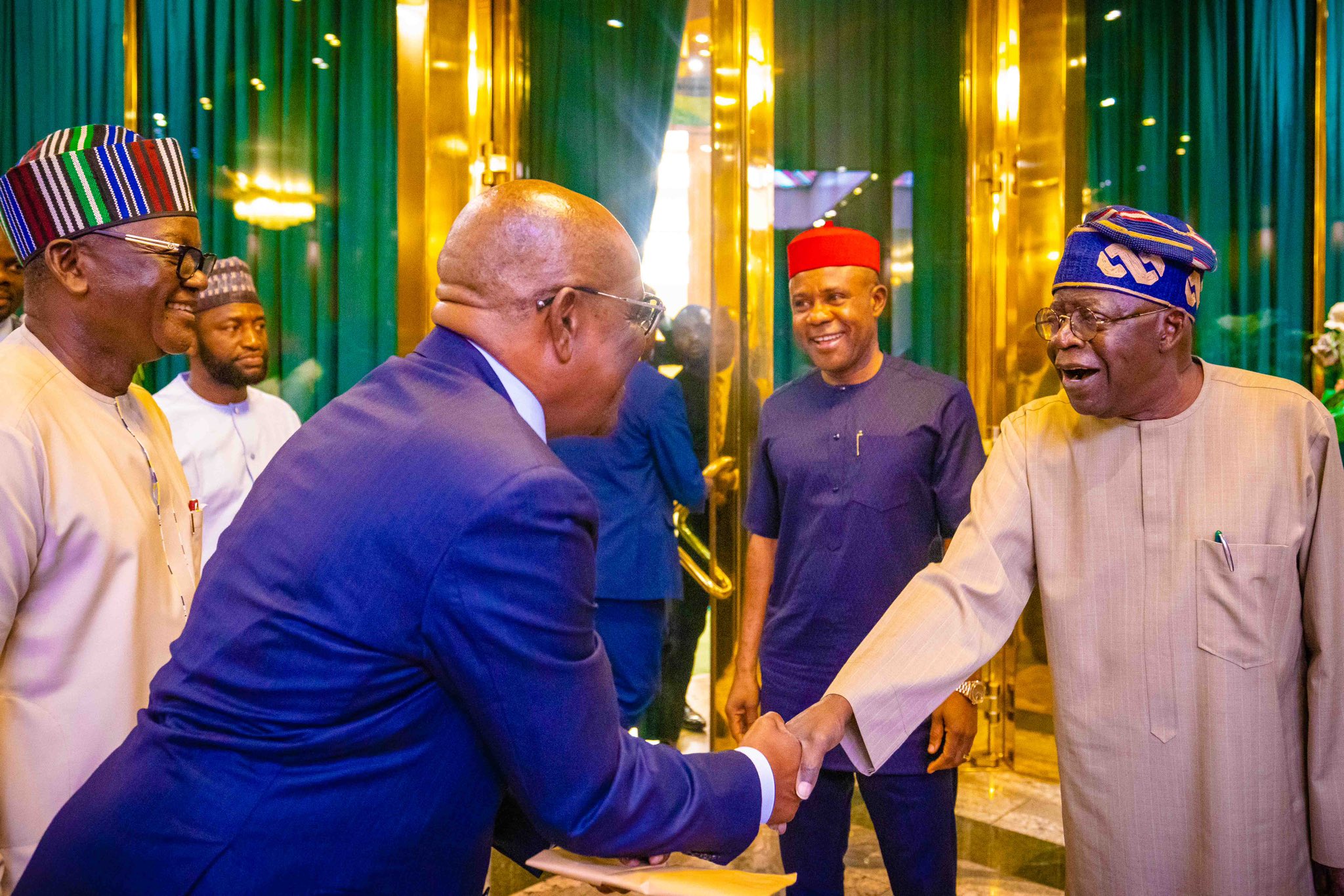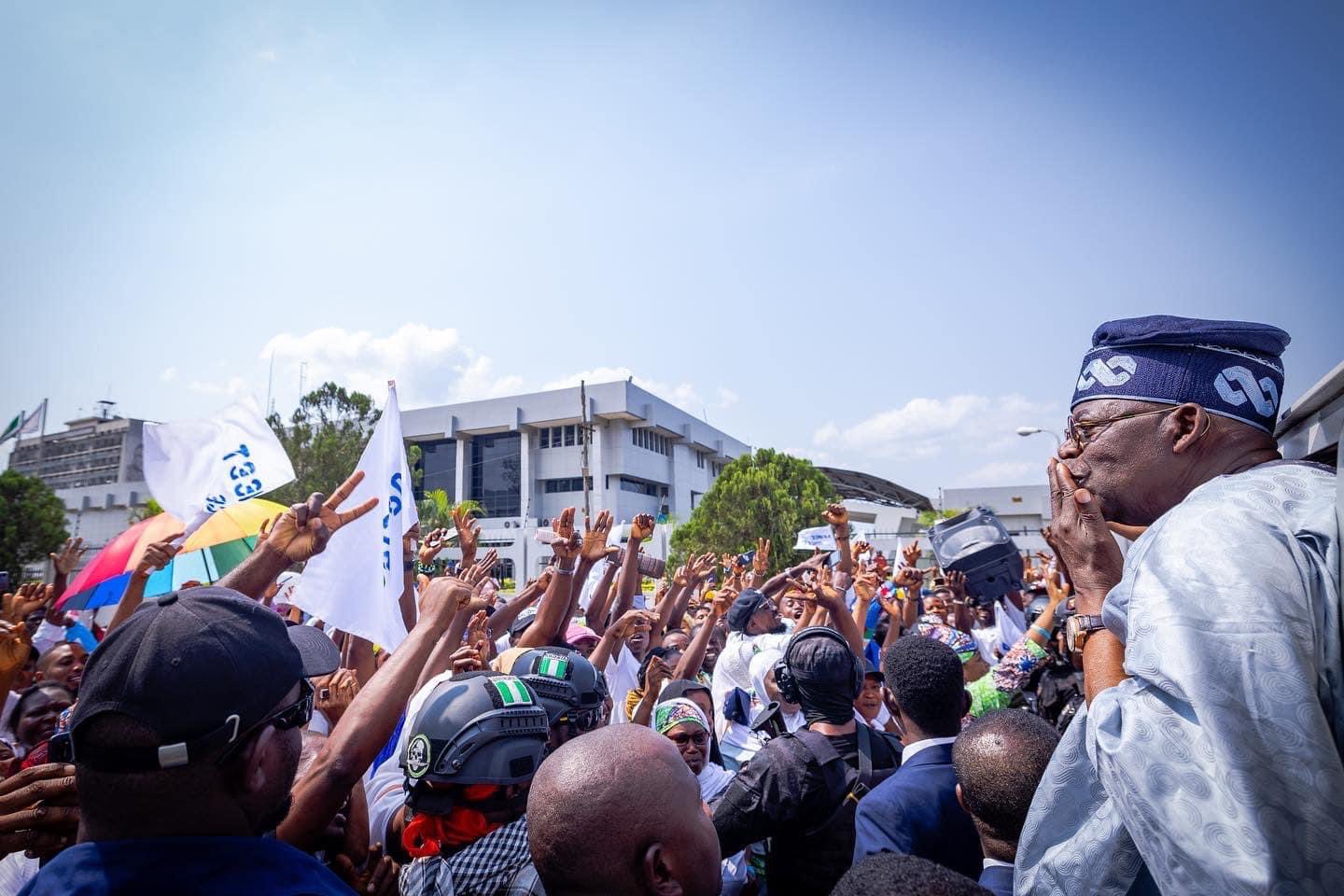One of the major foreign policy decisions that the new administration of President Bola Tinubu is likely to face in the coming months will be whether to join the BRICS group of nations or not.
BRICS is an acronym taken from the first letters of the countries that constitute the group: Brazil, Russia, India, China and South Africa. They are the arrowhead of emerging countries determined to challenge the dominance of the United States of America and its Western allies in global affairs.
The activities of BRICS have been gathering momentum steadily such that many people around the world are beginning to see them as not just a possible counterweight to the United States and its allies in the near and long term but also ultimately as the platform for a new world order of multipolar power centres in the world. And because several influential countries have shown interest in being part of BRICS or, at the very least, share in its mission due mainly to the appeal it poses, there have been calls on Nigeria to join the group lending its considerable weight and influence.
But beyond the rhetorical appeal of BRICS, what does it offer in concrete quid pro quo terms for Nigeria to consider joining it? In this regard, let us examine the countries pushing the BRICS agenda and what motivates their involvement in it.
Advertisement
Of the five countries making up BRICS, Russia and China have perhaps the greater motivation and desire to initiate and lead the agenda. Both countries feel a sense of political and economic encirclement and isolation by the US and its allies on account of divergent interests. In the reckoning of the US and its allies, Russia and China are dictatorships under which accountability to the people and denial of basic freedoms of association and expression are widely practised.
At the strategic level, both countries are battling with US containment policies in their immediate vicinities; Taiwan in the South China area and a hostile alliance with countries like Japan, South Korea, Vietnam and The Philippines to counter China. On Russia, US strategic containment policies have been to line up anti-Russia alliances with Baltic, Scandinavian and former East bloc countries.
But by far, the most far-reaching policies ranged against both Russia and China have been manifested in the economic sphere. Before the ongoing war in Ukraine, both countries were under a series of targeted economic actions aimed at curtailing their economic influence regionally and globally. Russia’s vast oil and gas exports, mainly to Europe, were put under sanctions.
Advertisement
In the case of China, the US engaged in a trade war over products, market access and accusation of undercutting the US dollar, among many other allegations. Following the Ukraine war, the US and its allies wasted no time in slapping wide-ranging sanctions on Russia, which not only affected it but its trading partners around the world. China and countries like India, Saudi Arabia and a whole host of others were negatively affected.
The moment the US and its allies slapped those sanctions against Russia, countries trading with it became collateral damage of the US action. This had the effect of accelerating the traction of the BRIC idea, which before then was not moving as fast as its proponents wanted.
India, Brazil and South Africa, which are regional powers in their respective continents and make up the other members of BRIC, have their mini agenda. Unlike Russia and China, they do not have any political and economic issues with the US and its allies. The three are countries with entrenched democratic structures which the US favours. Economically, the three have excellent economic relations with the US.
So why are they risking it all to get involved in a venture that the US considers hostile?
Advertisement
For Russia and China, BRICS is a pushback against US attempts at containment. For Brazil, India and South Africa, the BRICS idea is aimed at working towards consolidating their leading roles and position as regional powers, especially as the US seems bent on behaving like a bull in China shop (no pun intended) in the global space not minding who gets hurt in the process friend or foe. So should Nigeria then join this group?
First of all, BRICS looks like a dysfunctional organisation with its members motivated by individual and collective fear of the US. Without exception, all of them have standing relations with the US, against whom BRICS is all about. But to a large extent, they do not have a defined, concrete pathway to not just confront the US behemoth bullying the world currently, but more importantly, to convince the world that they can offer an alternative path to a world that desperately wants to be rid of US arm-twisting tactics. For them all, it is a catch-22 situation; they want to upstage the US on the global stage, but they also know that they are so massively dependent on the US that they cannot muster the will to push the BRICS idea without getting hurt in the process.
Secondly, I am not aware that the BRICS have a formal structure with a streamlined, practically achievable mission statement. Is it setting itself up in the mould of the UN or EU to achieve a specific agenda of global import and impact? Or is it something that Russia and China are setting up as a bulwark against US aggressive efforts at isolating both countries in global affairs but latching on to the grievances that the rest of the world feels about US dominance to slip up a bee in the most sensitive area of US global relations?
At this stage, as there are no clear answers to these pertinent questions, I would advise that Nigeria hedges its bets on joining BRICS. We may not always be on the best terms with the US and its allies over our relations with them, but it will be far worse to join an organisation that seeks to upstage the US without a realistic roadmap for achieving such aims.
Advertisement
Still, an organisation that can achieve the feat of bringing together two implacable foes, China and India, to sit at the same table is interesting enough and worth keeping an eye on for the future.
Gadu can be reached via [email protected] or 08035355706 (sms only)
Advertisement
Views expressed by contributors are strictly personal and not of TheCable.







